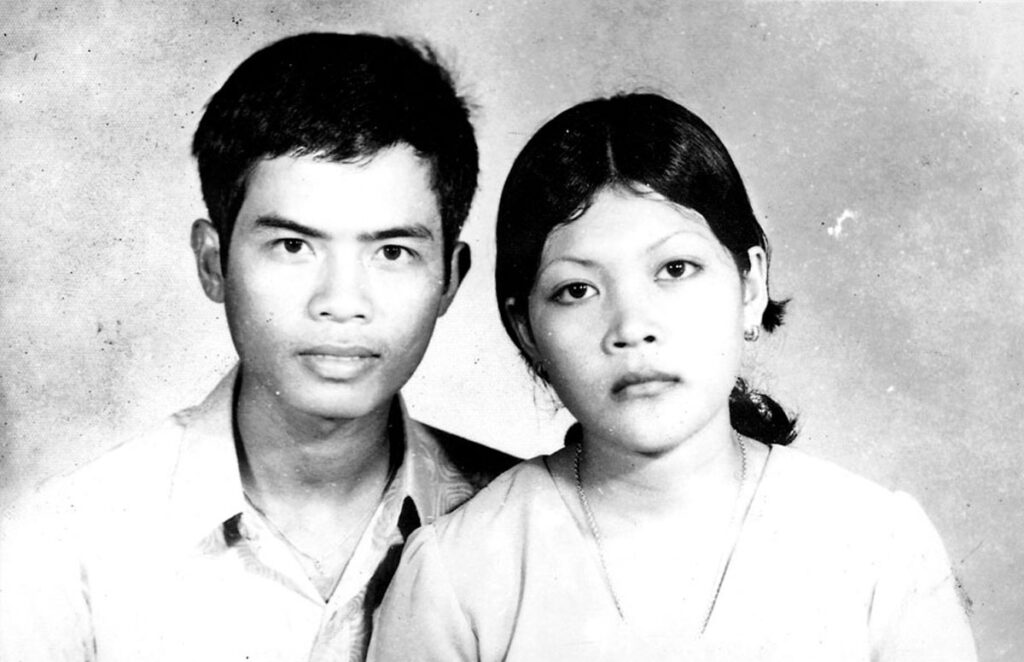During the Lon Nol regime my husband Mai Phy was a policeman in Phnom Penh. He also worked for a humanitarian organization that distributed food. He often traveled to the provinces to give rice, fish paste, canned fish, fish sauce, soy sauce, and mosquito nets to people who suffered because of the war.
I was born in Kandal Province. When the situation in my home village got very tense, my mother decided to move. My father stayed in the village, while she rented a house in Takhmau near Phnom Penh and sold tobacco. Phy and I got married at my aunt’s house, which was near my mother’s place in Takhmau.
Although we invited enough guests to our wedding to fill 50 tables, only 20 tables were filled. Few people attended because many bombs were being dropped near the house. During the wedding the guests hid under the house to avoid being shot. However, I stayed inside; I vowed I wouldn’t hide under the house even I were killed.
We lived with my mother for a year and then my husband was transferred to work in the Kambol section of Phnom Penh. He took a job as a security guard looking for people who were trying to transport contraband in cars. Our son was born during this time.
When our family was evacuated, we went to Kandal Province. We didn’t want to go to our home village like most other people; we were afraid my husband would be killed if the Angkar learned about his past. So Phy changed his name to Vanna and I changed mine to Channtha. I told them that he was a rickshaw driver and I was a seller.
Next they sent us to Battambang Province by train. After a month there, my father fell ill and was sent to a village hospital, but he kept getting worse. Because there wasn’t enough food or medicine at the hospital, the Angkar gave us permission to bring him home, knowing he wouldn’t live much longer. After 15 days in our house, he passed away. Before he died, he said to my mother, “When I die, do not cry because I will have escaped from all these sufferings. You are the ones who suffer more because you are alive.”
Later my son Rasmei died from lack of food and medicines as well. People who were sick were given only black pills that looked just like rabbit shit. Not long after, my mother became seriously ill. I had 37.5 grams of gold that I had brought with me from Phnom Penh. I exchanged it for only six cans of rice to give to her.
Phy was assigned to a men’s unit where the labor was hard. He had to plow, harrow, and transplant and pull out seedlings. We didn’t see each other much because I was in a women’s unit that dug ponds. At the end of 1978, I was four months’ pregnant with my second child. I did not realize that I was pregnant until I climbed up a tamarind tree and the baby began kicking.
One day, when I was walking to my work unit, I saw the Angkar killing soldiers, policemen, and lazy people. If we did not watch the killings, the Angkar would accuse us of being an enemy. One older man asked the Angkar if he could have a cigarette before he was killed. I recognized that man; he was Huoy Meas, who had been a popular singer. The cadres told him to run around the graveyard instead, and then Huoy Meas asked if he could sing a song. They said yes, and after he was finished, they hit him until he died, and then cut out his liver to fry and eat. After watching this, I barely ate anything for a week. I stayed in that village until 1979 when the regime collapsed.

